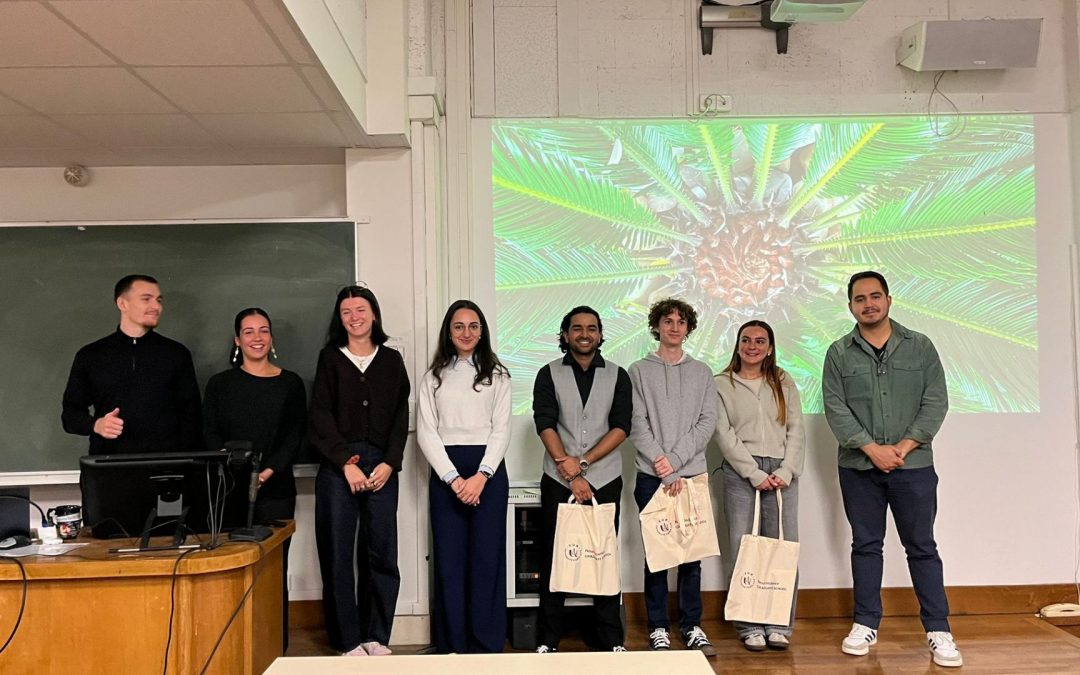With 3,050 doctoral students and an ambitious policy for attracting talent, UPCité strives to make its doctoral graduates known and recognised beyond the academic world. Following a recent report published promoting the value of PhDs in businesses, we spoke with Raphaël Porcher, Director of the Doctoral Schools at Université Paris Cité. He tells us about the challenges and actions implemented by the university to facilitate the integration of doctoral students into the private sector, while at the same time enhancing the excellence of their training.

What is the role of the Doctoral Schools at UPCité in promoting PhDs ?
Raphaël Porcher: As an intensive research university with IdEx accreditation, UPCité places high priority on promoting the value of the PhD. With 3,050 PhD students across 21 doctoral schools (including 12 under primary management), representing around a quarter to a third of our research workforce, UPCité is committed to supporting future PhDs in preparing for careers in companies and society. UPCité fosters academic excellence, notably through its 117 research units and 25 Graduate Schools within the SMARTS-UP programme, the latter is designed to strengthen the master’s – doctorate continuum and to attract international talent via specific doctoral contracts. We also offer a professionalizing approach with our IUTs (University Institutes of Technology) and our programmes in Health, STAPS (Sports Science Department), and Psychology, as well as for the PhD. Above all, the PhD is a truly a professional research experience. We reinforce this professionalisation through our offering of cross-disciplinary and career-oriented training modules preparing PhD students for diverse careers, both within academia and beyond.
Why is the PhD still underrecognised in the private sector?
R.P.: It’s true that PhDs remains underrecognised in France’s private sector, which is one of our major concerns. There are several likely explanations. On one hand, the percentage of working professionals with a PhD in France, at 1.0%, is slightly below the OECD average (1.3%) and significantly lower than in Germany or Switzerland, for example, where they are more highly recognised. In addition to this, there is an underrepresentation of PhDs in executive roles in companies, and even within corporate research centres, as Xavier Lazarus pointed out this morning. Our mission, therefore, is to promote the PhD, the highest degree issued in France – in the private sector. The research-based training of our doctoral students and the complementary doctoral training they receive across numerous fields make these graduates highly valuable potential assets for companies. It is important that their skills, which extend beyond research competencies, are recognised and valued.
How can we attract more engineers to doctoral research?
R.P.: Attracting individuals with engineering backgrounds to the doctoral research is challenging but also a powerful lever for driving innovation. In addition to our unique, interdisciplinary offering (in the humanities, science and technology, life sciences, and health), we have projects or initiatives in specific fields that are dynamic and well-positioned to attract engineers. This is the case with the Graduate Schools, for instance, as well as our involvement in the AI Cluster PR[AI]RIE-PSAI and the interdisciplinary Data Intelligence Institute of Paris (diiP). Beyond AI, we also have a strong and visible health sector, which appeals to engineers who want to develop careers at the intersection of their technical training and medicine, or more broadly, health. Our international attractiveness and the quality of our training teams are also major benefits in drawing such individuals.
How can doctoral training be adapted to maximise its economic impact?
R.P.: UPCité is actively working to maximise the economic impact of its doctoral graduates’ skills by continuously adapting its training programmes. In addition to career-oriented modules, we have set-up an alumni network that aims to create more company-PhD student meetings to expand opportunities. In addition, our Innovation Hub, ValoCité, enables PhD students to familiarise themselves with the needs and expectations of companies. Our training programmes also include aspects like social responsibility, open science, and sustainable development, in line with our “Planetary Health” motto.
How can PhDs contribute to innovation?
R.P.: Integrating PhDs into companies is important for driving innovation in France. UPCité’s doctoral students represent 5% of all PhDs nationwide, demonstating our commitment to training talent capable of transforming our economy. Our partnerships with companies, such as those through Industrial Agreements for Training through Research (CIFRE), which can still be expanded, aim to bring doctoral students closer to the world of business right from the start of their studies. By forging connections with professional networks, we believe these efforts will strengthen our competitiveness and innovation capacity.
The doctoral students at UPCité are key drivers of progress and innovation, and their expertise is increasingly finding a place beyond academia. The university is doing its utmost to support them in their professional integration, particularly by opening up promising career paths in the private sector. Equipped with specialised skills and solid training, they are ready to meet today’s challenges and contribute to the evolution of our economy. Through this promotion of PhDs, UPCité aims to enhance the impact of its talent within companies and society as a whole.
Do the report’s recommendations resonate with the measures taken by the university?
R.P. : The recommendations from Ms. Pommier and Mr. Lazarus’s report align with our concerns and reinforce several actions we have already initiated. At UPCité, the creation of the ValoCité Innovation Hub illustrates our commitment to strengthening ties with companies by showcasing the skills of our PhDs. We actively encourage interactions with professionals and industrial partnerships, notably through CIFRE programmes. We view this report as an opportunity to go even further, in particular by strengthening our partnerships with companies and local authorities.
Report – Recommandations for recognising PhDs in companies and society > Content in French
Read more
![[Cardiovascular Sciences] “Open UE”: looking back on an interdisciplinary adventure!](https://u-paris.fr/wp-content/uploads/2025/12/Sans-titre-1920-x-1080-px58-1080x675.jpg)
[Cardiovascular Sciences] “Open UE”: looking back on an interdisciplinary adventure!
The “open UE”, launched by the Graduate School Cardiovascular Sciences, brought together researchers, clinicians, and experts from diverse fields for a week to explore major issues in biomedical and translational research. Open to all students across the 29 Graduate Schools of Université Paris Cité, it offered a unique space for learning and interdisciplinary exchange.

Scientific event: the Neuroscience Graduate School highlights its young researchers
The Neuroscience Graduate School held the third edition of its scientific event, giving students from across the Graduate School the opportunity to present their research work. This now-established meeting has become a key moment for bringing together Master’s...

Université Paris Cité on the path to internationalising its programmes
L'Université Paris Cité is committed to internationalising part of its study programmes and supporting academic staff who wish to be part of this initiative. In order to provide them with the best support possible in gradually transforming their course modules, it has...

Call for applications for US Visiting Faculty 2026-2027
Committed to supporting research at the highest level through their partnership, Université Paris Cité and Sciences Po are calling for outstanding applications for visiting faculty from the United States. Apply before January 30, 2026.Candidates selected under a...
